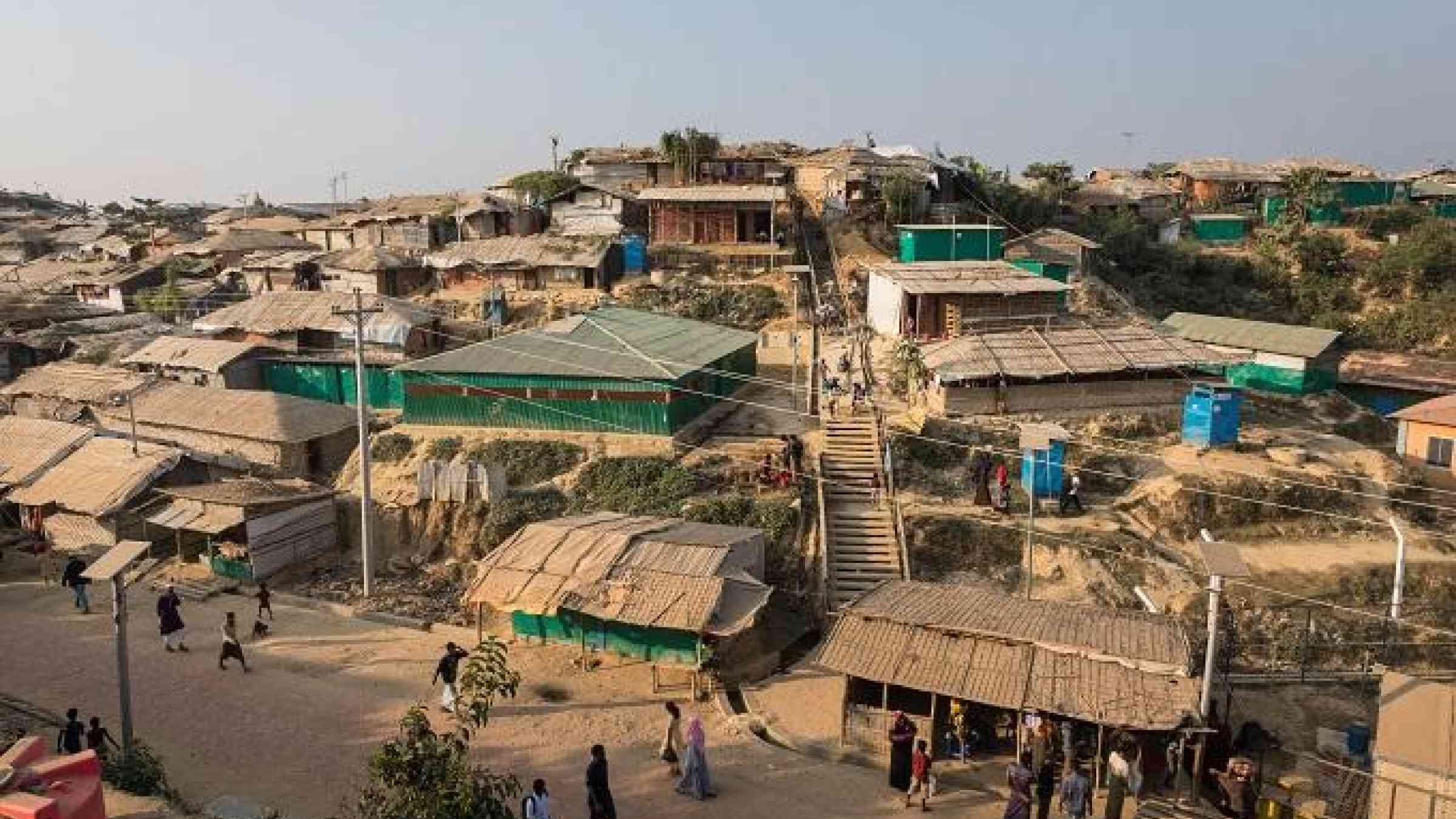Better forecast for better disaster risk management in Cox’s Bazar

United Nations Development Programme (UNDP) has partnered with Bangladesh Meteorological Department (BMD) and Regional Integrated Multi-Hazard Early Warning System (RIMES) to improve weather forecasting in Cox’s Bazar.
As part of the initiative, UNDP organized an inception workshop on December 30, 2019 for developing a weather-forecasting application for Disaster Risk Management.
Rainhanul Haque Khan, Country Programme Lead of RIMES, said, “This inception workshop provided an opportunity for all potential partners and participants to establish a common understanding on the weather forecasts project activities to be undertaken”.
He also noted that “this workshop will also accumulate the recommendations for improving the project”.
Mir Ali Asgar, programme coordinator of UNDP Bangladesh’s Cox’s Bazaar Sub-Office, emphasised that the collaboration “will help contribute to improve the early warning system in Cox’s Bazar which will ultimately help to improve the overall disaster risk management system in the district”.
He also noted that “The early warning system should be both ‘end-to-end’ and ‘people-centered’, that can significantly reduce the disaster risks available in the context of Cox’s Bazar”.
Yoganath Adikari, International Disaster Risk Specialist of UNDP Bangladesh, highlighted that “there is limited publicly available short-range forecast product in upazila level for Cox’s Bazar district. This partnership will help stakeholders accessing to localized forecasts information and products to better serve vulnerable communities”.
BMD Director Samsuddin Ahmed said, “The major priority of Bangladesh Meteorological Department is strengthening the localized short-range forecasting systems as well as to ensure proper dissemination of the existing early warning and forecasting information to the community level so that the people can act timely to save lives and to reduce property damage in the extreme weathers and hazardous events”.
Dr. Md. Mahamud-Ul-Hoque, Additional Secretary from Ministry of Defence highlighted, “the collaboration with international communities and technical stakeholders like RIMES and UNDP is crucial for Bangladesh Meteorological Department to implement innovative ideas to better early warning and forecasting systems”.
The local communities are exposed to multiple natural hazards and experience recurring extreme weather events including cyclones, torrential rains, landslides, flash floods, storm surges, and extreme temperatures due to the location, climate and topography of Cox’s Bazar.
In addition, the influx of the Rohingya refugees since 2017 has increased the size of the population at risk of disaster and extreme weather impacts as well as added pressures on environment which undermine resilience.
Therefore, to take early action and effectively respond to these extreme weathers and hazardous events, it is key that the government and other stakeholders have access to improved forecasting information and seasonal forecasts products to support planning and decision-making related to disaster risk management.
While the Bangladesh Meteorological Department (BMD) has a series of forecast products, the warning information is not readily available at high resolution, and not always updated on the online platform.
In light of this, UNDP, through its “Disaster Risk Management in Cox’s Bazar” programme, supported by ECHO and funded by SDC, will support Bangladesh Meteorological Department to issue localized short-range weather forecasts and seasonal forecasts for Cox’s Bazar district.
Representatives from BMD presented the overview of BMD’s services and activities as well as the project overview to be undertaken through this collaboration.